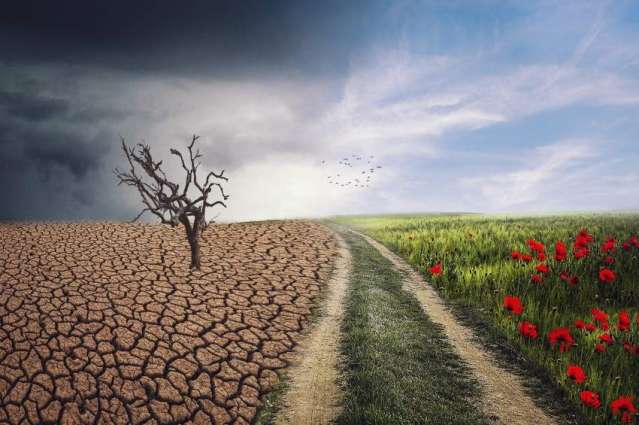The intersection of climate change and biodiversity is increasingly evident, positioning climate change as a foremost menace to wildlife on a global scale.
By Faiz ullah kakar
Our world is undergoing rapid changes, driven by the alarming pace of climate change. This global issue has ushered in a host of challenges, with biodiversity facing imminent threats.
As the Earth's temperature continues to rise, ecosystems worldwide are grappling to cope with the repercussions.
The intersection of climate change and biodiversity is increasingly evident, positioning climate change as a foremost menace to wildlife on a global scale. This pressing issue places numerous species, habitats, and ecosystems at grave risk, demanding urgent attention from policymakers, conservationists, and the public.
Despite scientists sounding the alarm for years, the gravity of the situation appears not to have been fully comprehended. The confluence of habitat loss, invasive species, and pollution has created an ominous scenario, paving the way for biodiversity depletion. Climate change poses a multi-faceted threat to biodiversity through various channels: rising temperatures, shifting rainfall patterns, sea level rise, ocean acidification, extreme weather events, and the proliferation of invasive species. These factors set off a chain reaction within ecological systems, resulting in species loss, habitat degradation, and the destabilization of entire ecosystems.
As a botanist, plants have been significantly impacted by climate variability across various dimensions. Environmental extremes and climate fluctuations amplify stressors on vegetation. The repercussions extend to crop production, contributing to food insecurity on a global scale and socio-economic ramifications. Climate-induced factors such as water deficits and temperature extremes alter vegetation growth patterns. For instance, a temperature increase of approximately 30°C during floret development can induce sterility in cereals. In 2022, heavy rains and flooding adversely affected Pakistan's agriculture products, and globally, maize, rice, and wheat production suffered a 35–75% reduction in grain set due to water deficit and climate change. Droughts significantly reduced cocoa yield in West Africa during the 1980s.
Projections indicate that agricultural production could plummet by 25.7% by 2080 due to climate change, with maize being the most affected crop in Mexico. The urgent need for action to address the impact of climate change on biodiversity cannot be overstated. The potential for widespread destruction demands immediate and concerted efforts to mitigate these effects before irreversible consequences unfold.




